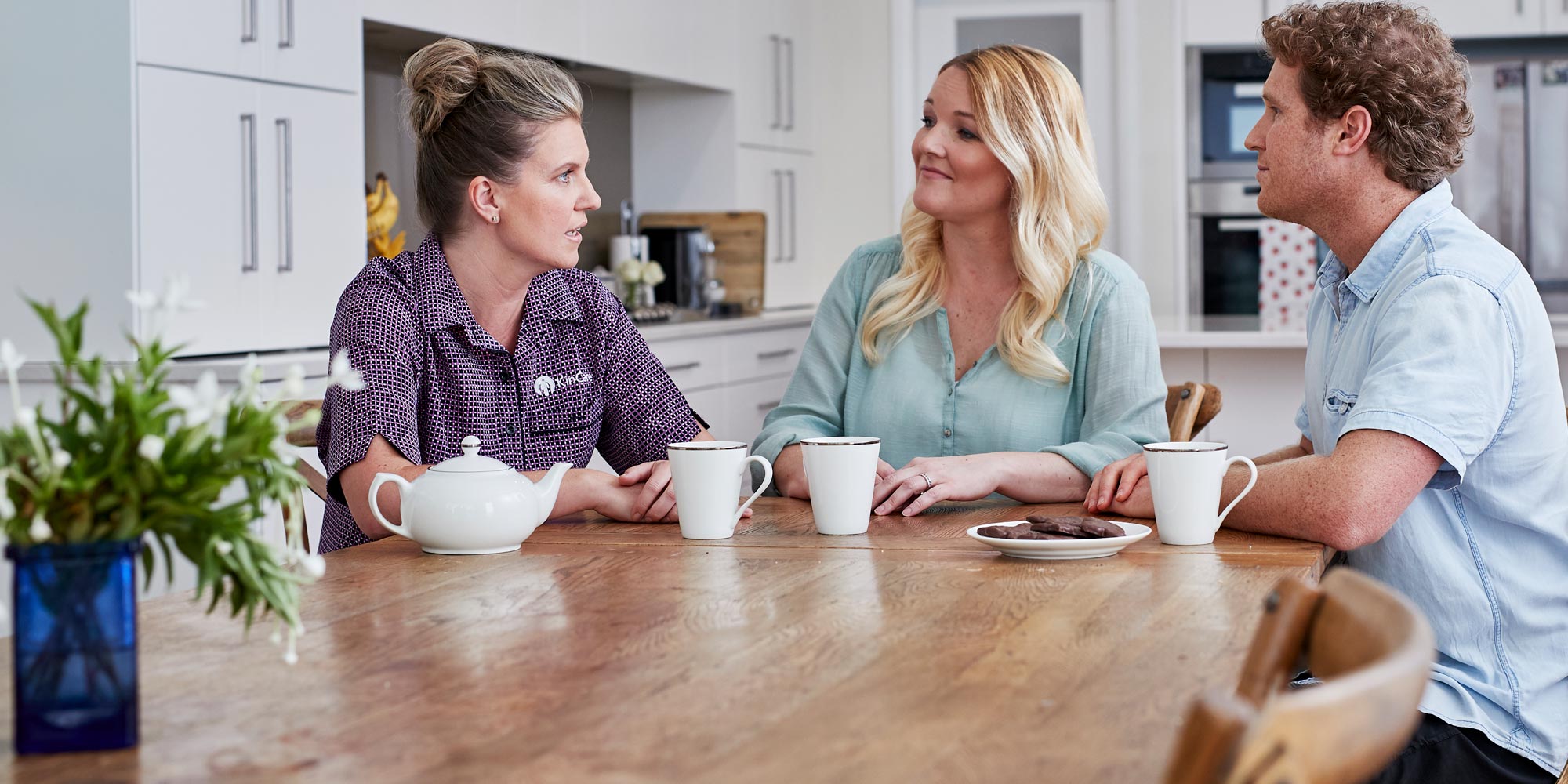
The end-of-life talk is one of the most important you’ll ever have
by KinCare — 19 December 2019
Nobody likes talking about the end of their life, but it’s perfectly healthy to have this conversation with your loved ones. In fact, the end-of-life talk is key to giving them the peaceful and dignified end that they deserve.
Let’s face it. Most of us would rather not contemplate the fact that those we love won’t be with us forever. It’s just too upsetting. But by avoiding the topic of dying, we’re missing out on a valuable opportunity to find out how our family members would like to live in their final days. It’s one of the most important talks you’ll ever have.
It’s time to start talking
We get to choose how we live. So why shouldn’t we also have a say over how we pass? Thanks to modern medicine, healthier lifestyles and a higher quality of life, more Australians are living longer. Your final days are just as significant and special as every other moment in your long, active life. So your choices about how you’d like to spend this time are important.
Many people aren’t able to take advantage of this opportunity because they haven’t had the chance to share their wishes with family and friends. Talking to your loved one about their wishes is actually a beautiful way to put them at ease. It can bring them reassurance during what can be a confronting time. All it takes is a few open, meaningful conversations. Then you can take the steps you need to make sure their wishes are honoured.
Start the conversation early
Starting a conversation about your loved one’s wishes for their end of life can be daunting, but there are steps you can take to raise the subject sensitively.
Choose the right time
Timing is one of the most important things to consider. Try to pick a time and place where everyone feels comfortable and relaxed. Summer holidays, when life tends to slow down a bit and you’re often surrounded by loving family members, can be a really great time to start a conversation.
Be supportive and patient
Patience is also important. Remember, you’ll be asking your loved one to confront their own mortality and make some of the biggest decisions of their lives. They may need some time to think things over. Reassure them that talking about their wishes is important and normal. Make sure they understand that you are raising the subject out of love and because you want to be able to support their choices. And let them know they can be supported to make decisions by you or somebody outside the family circle if this makes them feel more comfortable.
Our care pathways provide a holistic, connected approach to your individual care at every stage of your life. Our wide array of services in our End of Life pathway are designed to help you continue living at home with care and support that reflects your choices.
Understand that priorities can change
Let the conversation happen naturally, and make sure no one feels pressured to make a hurried decision. Give them time and space, and let them come back to it if they need to. You don’t have to decide on everything in one go. Make sure your loved one understands that there are no right or wrong answers, and that their priorities and choices may change over time.
Create an Advance Care Directive
Understanding your family member’s goals, values, beliefs and preferences is key to giving them choice and control over their end-of-life plans. While encouraging conversations amongst family members is a great place to start, one of the best ways to understand your loved one’s wishes around their passing is by creating an Advance Care Directive with them. This outlines what healthcare treatments and other things your loved one would like to have or refuse, should they be unable to make or communicate decisions about their care.
Does your loved one want to have their life prolonged by medical treatment? Would they prefer to spend their final days in their own home? Who do they want by their side in their final hours? How would they like others to celebrate their life?
These are the kinds of questions you might like to ask when having this conversation and drawing up an Advance Care Directive with your loved one. An Advance Care Directive also allows your loved one to appoint a trusted person as their decision-maker – someone who can act on their behalf if and when they are no longer able to make or communicate their choices and decisions.
Knowing this information in advance can also lift a huge burden from your shoulders. It means you don’t have to make agonising decisions on their behalf at an already stressful and emotional time. By understanding your loved one’s wishes now, you can give them the dignity they deserve at the end of their lives.
Choose KinCare’s End of Life Care Pathway
At KinCare, we believe the only home you should be in is your own. That’s why we pave the way so your loved ones can live safely and comfortably in their own home for as long as they wish. Our End of Life Care Pathway provides dignity and comfort at the end-of-life, and gives you peace of mind about your loved one’s final days.
Chat with us
If you have any questions about helping someone you love to have the conversation with you, please don’t hesitate to contact KinCare. Our Customer Care Managers are here to help you and your loved ones get the best out of our services and support.